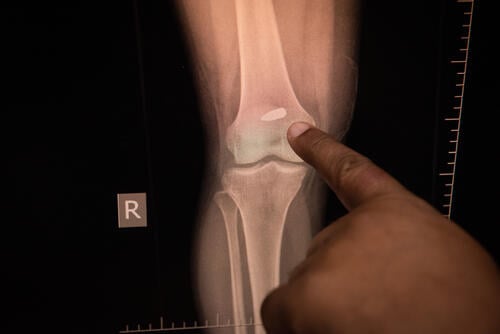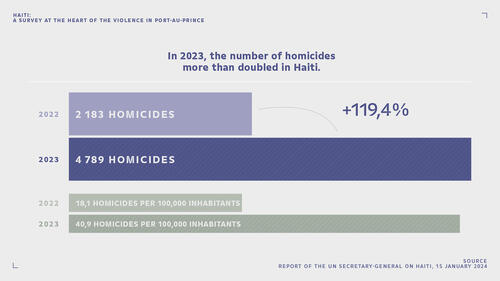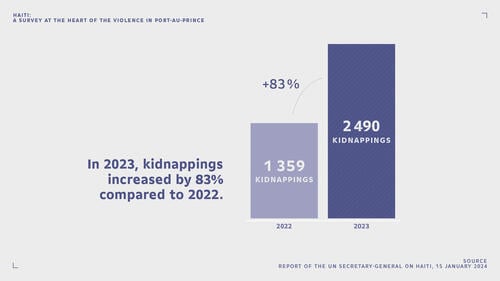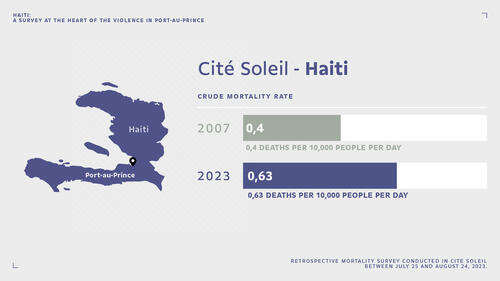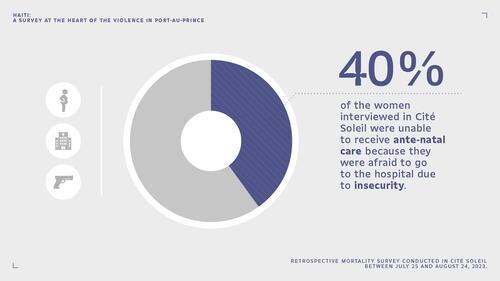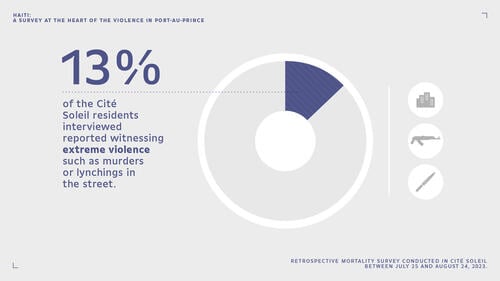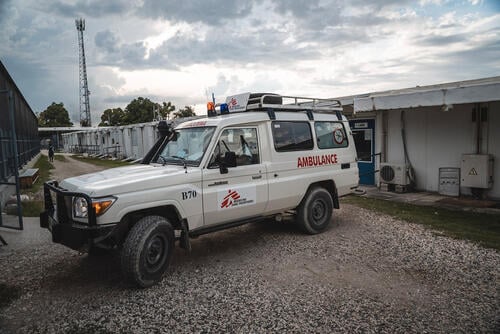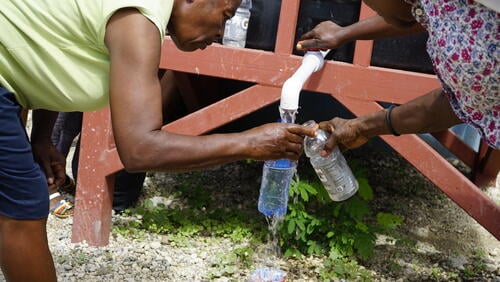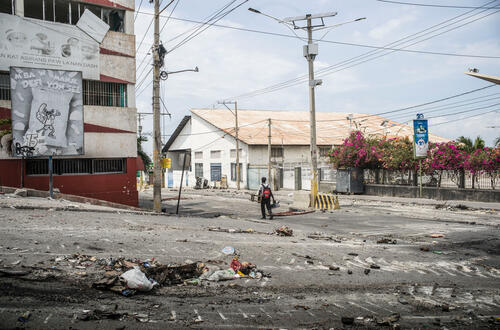Port-au-Prince/Paris – The first survey in more than a decade to examine the impact of violence on mortality in Haiti reveals the extreme levels of violence experienced by residents of Cité Soleil, the largest slum in the capital, Port-au-Prince.
The retrospective mortality survey was carried out by Epicentre, the epidemiology and medical research arm of Médecins Sans Frontières (MSF), and covers the period between August 2022 and July 2023. It reveals a worrying escalation in violence compared with a similar study carried out by MSF in 2007 in the same area.
According to the new survey, more than 40 per cent of deaths are linked to violence, while the crude mortality rate [the number of deaths per 10,000 people per day] is 0.63. Past MSF surveys indicated similar mortality rates in the Islamic State group’s north Syria stronghold in 2017 among people exposed to the group’s terror regime and bombardment by the international coalition,Survey conducted between 8 and 17 November 2017 with a recall period of one and among Rohingya refugees in the months immediately preceding the campaign of violence launched against them by the Burmese army.Survey of violence in Myanmar from February to November, excluding the period 25 August - 24 September 2017
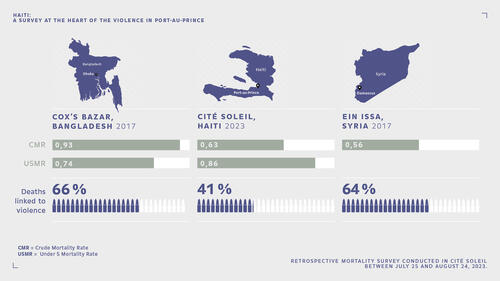
In addition to the high mortality rates, 13 per cent of Cité Soleil residents surveyed reported having witnessed acts of extreme violence in the street, such as murders or lynchings, and 40 per cent of women surveyed said they had foregone antenatal care due to the risks of being exposed to violence while travelling to a hospital or clinic.
“I’m used to seeing people killed,” says an MSF staff member from Haiti. “I'm used to seeing bodies on the ground. I'm used to seeing charred corpses. I’m used to hearing bangs. Sometimes it’s someone you know. I’m talking about terror, about armed violence. I’m talking about physical violence. I’m talking about psychological violence. I’m talking about misery. I’m talking about killings. I’m talking about gang violence against people.”
The survey paints a grim picture of life in the Haitian capital, gripped by chaos and living with constant threats from the presence of armed gangs and the risk of being caught in clashes between gangs, the police and civilian self-defence brigades.
It’s shocking to see schoolchildren, who have nothing to do with the gangs, be shot at and have bullets in their bodies.An MSF staff member working in Haiti
According to the Office of the UN High Commissioner for Human Rights (OHCHR), January 2024 was the most violent month in Haiti in more than two years, with at least 806 people killed, injured or kidnapped in the country. The situation has deteriorated even further since, and on 28 February, Port-au-Prince descended into chaos, with dozens of injured people crowding MSF facilities.
“When you’re the father of a family and you see a two-year-old girl arriving with a bullet wound, it’s really shocking,” says an MSF staff member working in Haiti. “It’s shocking to see schoolchildren, who have nothing to do with the gangs, be shot at and have bullets in their bodies.”
Between 2022 and 2023, the number of homicides in Haiti doubled, while kidnappings increased by 83 per cent, according to a recent report by the UN Secretary-General.United Nations Integrated Office in Haiti : report of the Secretary-General, 15 January 2024 However, it is likely that the real scale of the violence is much higher, as the findings of Epicentre’s survey far exceed the official figures. In 2023, for example, the UN reports more than 4,700 homicide victims across Haiti, while the Epicentre survey reports more than 2,300 violent deaths in Cité Soleil alone, despite it being home to just nine per cent of the capital’s population.
MSF has been working in Haiti since the 1990s. Our teams have responded to major emergencies including the 2010 earthquake and the cholera epidemics of 2010 and 2011. Today, we provide free medical care, including emergency trauma care, burns treatment, maternity care, care for victims of sexual violence and basic healthcare in disadvantaged neighbourhoods in Port-au-Prince.
About Epicentre
Epicentre is the research arm of MSF, dedicated to conducting epidemiological studies and operational research to improve the effectiveness and quality of humanitarian medical programmes.



